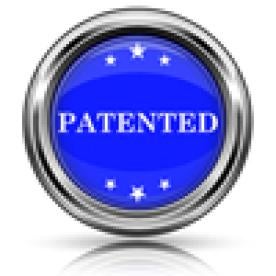The Federal Circuit, in In re: TC Heartland LLC (No. 2016-105), recently issued an opinion denying TC Heartland’s petition for a writ of mandamus to direct the U.S. District Court for the District of Delaware to either dismiss or transfer the patent infringement suit filed against it by Kraft Foods Group Brands LLC (“Kraft”). This case is significant because it rejected an argument that, if accepted, could have limited the number of suits filed by non-practicing entities in districts that are viewed as patent-friendly and far-afield of where corporate defendants meaningfully engage in business.
TC Heartland is a limited liability company organized under Indiana law with its headquarters in Indiana. Kraft is organized under Delaware law with its principal place of business in Illinois. Kraft sued TC Heartland in the U.S. District Court for the District of Delaware, alleging that TC Heartland’s water enhancer products (“accused products”) infringed three of Kraft’s patents. TC Heartland moved to either dismiss the suit or transfer venue to the Southern District of Indiana under 28 U.S.C. §§ 1404 and 1406. It also moved to dismiss the suit for lack of personal jurisdiction under Fed. R. Civ. P. 12(b)(2).
At the district court, TC Heartland argued that it was not registered to do business in Delaware, had no local presence in Delaware, had not entered into any supply contracts in Delaware, and had not called on any accounts in Delaware to solicit sales. TC Heartland admitted, however, that it shipped orders of the accused products to Delaware.
The magistrate judge rejected TC Heartland’s arguments that the 2011 amendments to the general venue statute, 28 U.S.C. § 1391, changed the law governing venue for patent infringement suits in § 1400(b), which allows a patent case to be brought in any judicial district “where the defendant resides,” among other things. Section 1391(d) provides that a corporate defendant “resides” in any location where it is “subject to personal jurisdiction.” In VE Holding Corp. v. Johnson Gas Appliance Co., 917 F.2d 1574 (Fed. Cir. 1990), the Federal Circuit held that the broad definition of “reside” in § 1391 also applied to § 1400(b), and the magistrate judge found that VE Holding still applied despite certain changes in 2011 to the language of § 1391. On personal jurisdiction, the magistrate judge determined that the district court had specific personal jurisdiction over TC Heartland for claims involving the accused products based on the shipping of the accused products to Delaware. The district court adopted the magistrate judge’s report and recommendation and denied TC Heartland’s motions. As a result, TC Heartland filed the petition for a writ of mandamus with the Federal Circuit.
For venue, the issue before the Federal Circuit again was whether the VE Holding decision still applied after the 2011 amendments to 28 U.S.C. § 1391, and thus whether TC Heartland “resided” in Delaware based on an arguably narrower definition of corporate residence under § 1400.The Federal Circuit rejected TC Heartland’s arguments, holding that they had been resolved by its VE Holding decision over 25 years ago. The court addressed the two “minor” changes made to § 1391 by the 2011 amendments that were relevant to the appeal. First, the Federal Circuit explained that “[t]he language preceding the definition of corporate residence in § 1391 was changed from ‘For the purposes of venue under this chapter . . .’ to ‘For all venue purposes . . . .’” According to the court, that change was “a broadening of the applicability of the definition of corporate residence, not a narrowing” and, therefore, the “change in no manner supports [TC] Heartland’s arguments.”
Second, the Federal Circuit rejected TC Heartland’s argument that the 2011 amendment to § 1391(a) rendered § 1391(c)’s definition of corporate residence inapplicable to venue for patent cases. The court explained that the 2011 amendment’s addition of “Except as otherwise provided by law” to § 1391(a) was not an attempt by Congress to codify the federal common law in existence prior to the VE Holding decision. The court stated: “In fact, before and after these amendments, in the context of considering amending the patent venue statute, Congressional reports have repeatedly recognized that VE Holding is the prevailing law.” Accordingly, the court held that, even if the 2011 amendments were intended to capture existing federal common law, the VE Holding decision was the law that would have been captured.
Turning to personal jurisdiction, the Federal Circuit also rejected TC Heartland’s argument. The Federal Circuit explained that its decision nearly 20 years ago in Beverly Hills Fan Co. v. Royal Sovereign Corp., 21 F.3d 1558 (Fed. Cir. 1994), foreclosed TC Heartland’s argument because that decision “held that the due process requirement that a defendant have sufficient minimum contacts with the forum was met where a non-resident defendant purposefully shipped accused products into the forum through an established distribution channel and the cause of action for patent infringement was alleged to arise out of those activities.” Because TC Heartland admitted that it shipped the accused products directly to Delaware, the court held there was sufficient minimum contacts to support personal jurisdiction.
Because the court held that TC Heartland’s arguments were precluded by long-standing Federal Circuit law, it denied the petition.
For now, corporate defendants who had hoped for a different outcome by the Federal Circuit will likely turn their focus back to pending patent reform legislation, such as the Venue Equity and Non-Uniformity Elimination Act of 2016 (the “VENUE Act,” S. 2733), which would amend 28 U.S.C. § 1400 to limit the venues in which patent holders could bring infringement suits, and the Innovation Act (H.R. 9) and its Senate counterpart, the Protecting American Talent and Entrepreneurship Act (the “PATENT ACT”, S. 1137), which are aimed at curbing litigation abuse by so-called “patent trolls.”




 i
i


